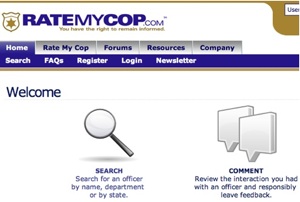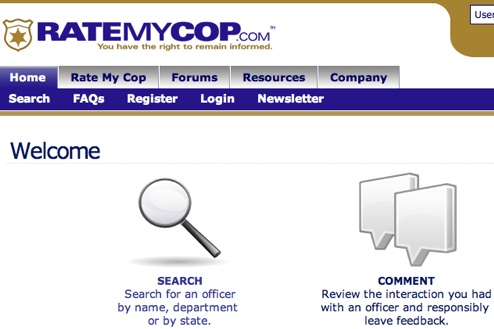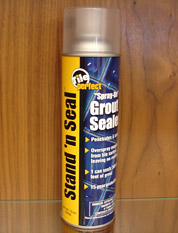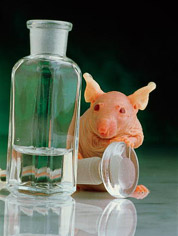“Pre-emption” is a legal doctrine that says the federal government can claim all regulatory power over an area or subject, barring states from acting on their own. The drug maker Wyeth has brought a case before the Supreme Court arguing that a woman in Vermont, who lost her arm due to a drug complication that Wyeth knew about but did not publicize, cannot sue them in state court because of pre-emption. Wyeth says that only the FDA has the power to regulate it—and since the FDA approved Wyeth’s drug label, it’s the FDA’s responsibility. We think Wyeth is pretending to care about federal-versus-state power in an attempt to weasel out of any responsibility.
oversight

Go Daddy Refutes Censorship Claim
The reader who sent Go Daddy an email asking why they shut down RateMyCop.com received a response in which they emphatically denied any censorship—this was all about a customer exceeding his contracted server usage limits and nothing else, they say. Read their full response after the jump.

Go Daddy Shuts Down RateMyCop Watchdog Site
Yesterday, Go Daddy pulled the plug on RateMyCop.com, which has been criticized by law enforcement officials for allegedly putting police officers in danger by listing their names and in some cases badge numbers. Visitors can then add comments and post critiques or praise about specific cops in their area. The website collected its officer data via public information requests, and no personal information is used, nor are undercover agents revealed. Still, law enforcement officials are upset at the exposure. When the site’s owner, Gino Sesto, called Go Daddy, he was first told it was removed due to “suspicious activity,” but then the reason was changed by a supervisor to an exceeded bandwidth cap, which Sesto disputes. Update: Go Daddy responded to our reader’s email and said taking the site offline had nothing to do with censorship.

House Votes 407-0 To Ban Lead In Toys And Increase CPSC's Funding
Today the House of Representatives unanimously approved H.R. 4040, the Consumer Product Safety Commission Modernization Act of 2007, that virtually eliminates lead from children’s toys (down to 100 parts per million by 2012) and increases the funding of the CPSC. A Senate committee approved its own version of an anti-lead/pro-CPSC bill in October, but it hasn’t reached a floor vote yet—so sometime (early?) next year a final bill should be hammered out to send to the White House. Unless, of course, the lead toy furor disappears after Christmas.

Dangerous Sealant Recalled, Replaced By Just-As-Dangerous Sealant
It’s been more than two years since the CPSC first became aware of problems with the spray-on sealant Stand ‘n Seal—it contained a chemical that can cause extreme respiratory problems in some customers, but was only partially recalled by the manufacturer and then replaced with another product with the exact same chemical—but the CPSC has yet to issue any fines to the company, writes the New York Times. It’s yet another example of how an underfunded, underpowered CPSC fails to protect the public from reckless companies who swap ingredients, lie, and hide important data in order to protect their bottom line.

Participating In A Clinical Study? You're On Your Own
The FDA’s own parent department, the Department of Health and Human Services, just issued a report that says the FDA “does very little to ensure the safety of the millions of people who participate in clinical trials,” according to the New York Times. The FDA has 200 inspectors, some of whom are part-time, to monitor 350,000 testing sites—and even when they reported “serious problems,” their findings were downgraded 68% of the time by higher-ups in Washington.


